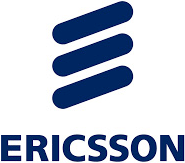Motivating Employees with Incentives, Not Just Money
Incentives impact employee engagement. These incentives can be anything from comprehensive medical insurance, to pay raises, or flexible work time. Many companies believe that employees are best motivated with money, such as bonuses or raises. However, a report from Badgeville concludes that 70% of employees are motivated through non-monetary means.
If you manage a company that has to closely watch its cash flow, unconventional incentives can help you hang onto your valuable employees while staying within your budget. Understanding what keeps employees engaged makes it easier to implement the following non-monetary motivators.
Public Recognition
Many employees go to sleep at night wondering when their manager will finally recognize all their hard work and contributions with a simple pat on the back or public thanks. Managers can easily overlook how hard their employees work and neglect to show their gratitude. If you haven’t taken time to thank your team, do it now.
Recognize each team member individually, or if you work for a big company, recognize full teams all at once. During team meetings, through email, or during one-on-one time thank an employee for their hard work if you know they have exceeded a goal or reached a milestone. Some companies hand out recognition plaques, such as “Employee of the Month.” Let your employees know exactly where they did well. A simple “thank you” goes a long way.
Listen to Ideas
Businesses must unearth hidden talent. One way that companies encourage innovation is by making sure that ideas are heard and great ideas are promoted to the right channels for development. Employees work best when they believe that their input is considered and taken seriously. Proper recognition of those who want to improve even the most boring of tasks is a must.
Managers and supervisors need to utilize interactive listening on every level to nurture leadership skills, innovation, and a positive corporate culture. Team leaders who practice interactive listening lessen the likelihood of unproductive meetings because employees are eager to solve problems, knowing that their ideas are heard.
Personal Involvement
It can be difficult for managers with large teams to involve themselves in every employee’s personal life. Yet, neglecting your employees can have dire consequences and increase your turnover rate.
Using a funnel hierarchy to gather input comes in handy for employee mentors or supervisors. By creating a hierarchy, you can prevent any employee from feeling left out or any manager from becoming too overwhelmed from listening to employee concerns. The idea is to set up specific time intervals for mentors and supervisors to ask employees about workplace happiness, career goals, and personal development, rather than continuously gathering this type of information.
If you want your employees to view your company as more than a paycheck, use motivational incentives that promote workplace happiness and growth.




























 By submitting this form you agree to our
By submitting this form you agree to our